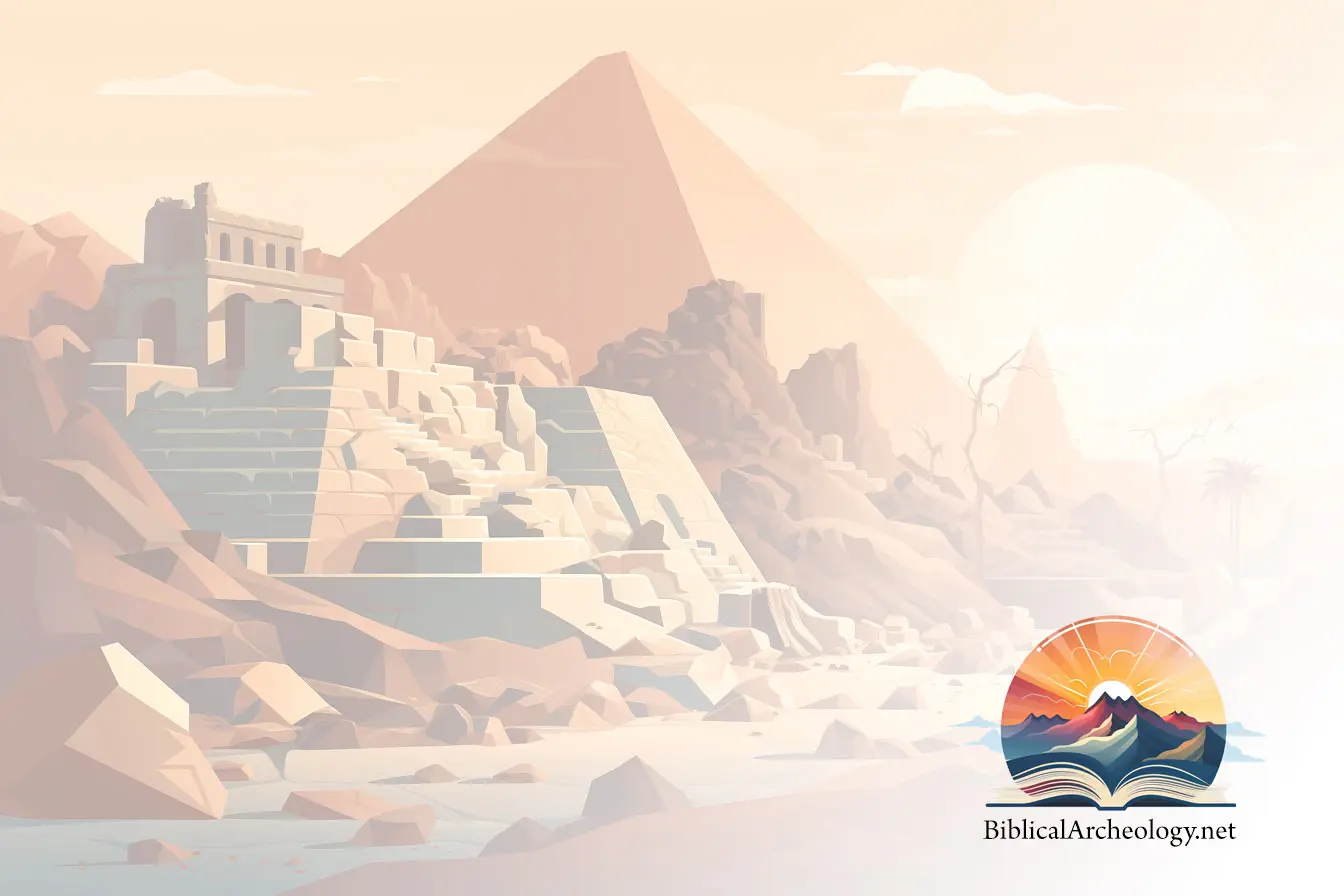These Articles Are Reproduced With Special Permission From Archeological Diggings Magazine
For More Information And A Subscription, Please Visit www.DiggingsOnline.Com
Userkaf is generally regarded as the first king of the fifth dynasty of Egypt. The fourth dynasty kings Seneferu, Khufu, Khafre and Menkaure had built the massive stone pyramids of Giza. Userkaf tried to maintain the fashion but he obviously lacked the means to emulate the style of his predecessors. He built his pyramid just outside the wall around Zoser’s Step Pyramid at Saqqara, but it was just a pile of rocks faced with smooth limestone blocks.
Subsequent builders robbed the outer limestone blocks, leaving a pathetic pile of rubble, but Userkaf also erected a mortuary temple on the south side of his pyramid. This temple also was robbed of its stones and only the foundation materials remained for the archaeologist to excavate, but among the ruins they did find the head of a statue of Userkaf and it is now one of the treasures of the Cairo Museum. They also found some artistic reliefs of remarkable quality. One of them is a very life-like picture of a bird feeding its young. Another relief identified the pyramid with the words, “Pure are the places of Userkaf.”
Userkaf’s head is made of granite, is more than twice life size and has the trace of a smile on its lips, rather unusual for the Pharaohs, who usually took themselves extremely seriously. But that is about all we know for sure about Userkaf. Not to worry. What we don’t know, Naguib Mahfouz invented.
Mahfouz is an Arabic writer who, in 1988, was awarded the Nobel prize for literature. His entirely fictitious story about Userkaf was recently translated into English by Raymond Stock and printed in the third 2002 edition of KMT. It relates a very unlikely story of this king who abdicated his throne to his son and went into voluntary exile in the land of Punt so that he could return and find out whether his subjects would still be loyal to him. But when he returned his son refused to surrender the throne, so Userkaf had to flee to Nubia, round up an army and retake his throne by force. The story is so fanciful it does not even make good reading – not in English, anyway.
The translator notes that Userkaf “was probably a grandson of Khufu, builder of the great pyramid of Giza” and excuses the liberties Mahfouz takes by saying that “Userkaf’s poorly documented reign offered a nearly clean slate for Mahfouz’s imagination.”
The only historical informatino we have about Userkaf is from the dubious writings of Manetho, the Egyptian priest who wrote a summary of the kings and dynasties of Egypt in the first century BC, after the pharaohs had yielded their throne to the Greek rulers who followed Alexander.
We do not today have any of Manetho’s original writings in existence. We only hve the third-hand account of George Syncellus about 800 AD, who quoted from Africanus in the third century BC, who quoted from Manetho five hundred years earlier. This states: “The fifth dynasty was composed of eight Kings of Elephantine” and then lists the kings and their lengths of reign. The first of these was Usercheres (Userkaf) who reigned for 28 years. (Mark Lehner wrote in his book The Complete Pyramids p. 140 that Userkaf’s reign may only have been seven years!) The eight kings add up to 208 years, though George’s quote ends, “Total 248 years”.
Syncellus also quotes from Eusebius, another third century AD writer. “The fifth dynasty consisted of thirty-one kings of Elephantine. Of these the first was Othoes, who was murdered by his bodyguard.” But he is probably referring to the sixth dynasty, who first king was Orthoes. So that only leaves us with the quote from Africanus – for what it is worth.
The pyramid of Userkaf must have looked quite imposing when completed. Viewers could only see the gleaming exterior and could not know that the interior was only a heap of rubble. The outside measurement was 73 x 73 metres and would have been 49 metres high. An entrance on the west side leads down a passage into an 18 metre long corridor lined with granite blocks. At the end of this corridor a passage branches off at right angles leading to the burial chamber. A black basalt sarcophagus was in this chamber, but there was nothing in the sarcophagus when archaeologists entered the pyramid.
Userkaf was succeeded by four kings who built their pyramids at Abusir and the last king of this dynasty was Unas, who built his pyramid to the south of the Step Pyramid.
February 2003


